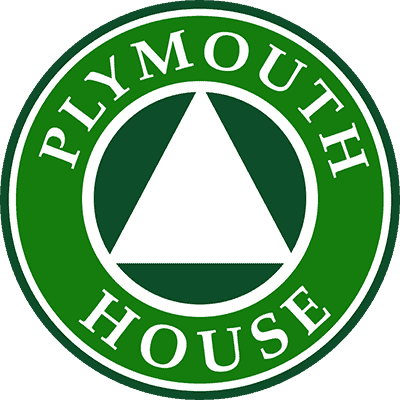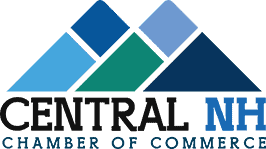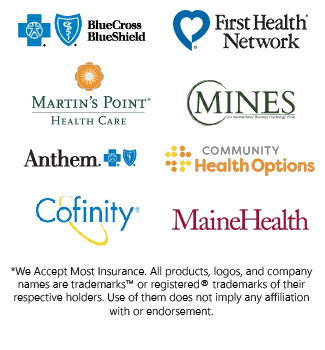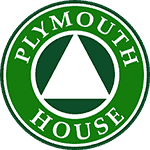What We Treat
Stimulant Addiction
Stimulant Addiction
Are you looking for stimulant addiction treatment for yourself or a loved one?
At Plymouth House we understand just how devastating stimulant addiction can be. Stimulant drug addiction affects millions of Americans on an annual basis. Stimulant drugs include illicit stimulants like cocaine and methamphetamine, and prescription stimulants like Adderall, Ritalin and Concerta. While rates of illicit stimulant abuse have remained relatively consistent over the course of the past several decades, rates of prescription stimulant abuse have been on the rise in recent years. According to an article published by the National Institute on Drug Abuse, scientists at the US Department of Health and Human Services recently found that roughly 6.6 percent of American adults (around 16 million men and women throughout the country) abused prescription stimulants at least once during the year prior. The same study found that 11 million American adults used prescription stimulants as prescribed — meaning that more people abuse prescription stimulants than use them appropriately. Many people mistakenly believe that because these medications were initially prescribed by a medical professional, they are safe to use and unlikely to result in any serious health-related complications. On the contrary, prescription stimulants can be just as habit-forming and can result in just as many short and long-term issues as drugs like cocaine or methamphetamine.
But..there is hope! Plymouth House has helped hundreds of men and women recover from stimulant addiction and go on to lead healthy, happy and substance-free lives. The Plymouth House Program utilizes a powerful combination of intense 12-step work, therapy and holistic treatment options in order to consistently deliver the most effective and integrated care available.
More About Stimulant Abuse & Addiction
Cocaine
Because opioid narcotics have been responsible for the majority of overdose-related deaths in recent times, a smaller amount of focus has been placed on the risk of stimulant-related overdose. However, according to the Centers for Disease Control and Prevention, cocaine was involved in roughly one out of every five overdose-related deaths in the year 2017. During this year alone, roughly 14,000 men and women lost their lives to cocaine overdose. In 2016, roughly 5 million American adults reported that they used cocaine on a regular basis. Cocaine is a highly addictive stimulant drug that is typically snorted (used nasally), though it can also be smoked or injected.
Methamphetamine & Other Psychostimulant Drugs
Methamphetamine is an illegal psychostimulant that has a very high potential for abuse. This drug can rapidly devastate physical and mental health, and has been shown to lead to a range of adverse short and long-term health effects including permanent brain damage, cardiovascular issues, the development of anxiety-related issues, insomnia and violent behavior. In 2019, it was reported that 2 million Americans over the age of 18 abused methamphetamine at least once during the year prior. The CDC reported that rates of psychostimulant overdose have been steadily increasing since 2010. In the year 2017, more than 10,000 American adults lost their lives to psychostimulant overdose — a 37 percent increase from the previous year. It is important to note that methamphetamine is not the only psychostimulant drug with a high potential for abuse — ecstasy also falls into this category.
We Are Here For You
Let Us Help You Heal
Our Stimulants recovery services are second to none.
Learn how we can help by speaking with one of our Treatment Advisors today.
Prescription Stimulants
Prescription stimulants are most commonly used to treat attention deficit hyperactivity disorder (ADHD), though they might also be prescribed to someone who has been struggling with narcolepsy. The most common brand name prescription stimulants include Adderall, Vyvanse, Ritalin, Concerta and Dexedrine. Many people who abuse this type of medication do so in order to increase alertness and concentration, however, there are many adverse health effects that go hand-in-hand with prescription stimulant abuse. Side effects include increased heart rate, increased blood pressure, anxiety, panic attacks, paranoia and decreased blood flow. If you or someone you love has been abusing any type of stimulant drug, recovery is possible. At The Plymouth House we have extensive experience treating men and women of all ages who have struggled with any type or severity of stimulant addiction. For more information, contact us today.
Our Stimulants Treatment Services Include
Stimulant Addiction
Signs & Symptoms
Signs & Symptoms
The Diagnostic and Statistical Manual of Mental Health Disorders, 5th Edition (or the DSM-5) outlines the criteria that must be met in order for a stimulant use disorder to be professionally diagnosed. In order for a person to be diagnosed with a stimulant use disorder, he or she must present at least two of the following symptoms for at least a 12-month period of time.
Signs of Stimulant Addiction
- Taking more stimulants than intended for a longer period of time than intended
- Trying to cut back on the amount of stimulants being taken, but being unable to do so for any significant period of time
- Spending an excessive amount of time obtaining, using and recovering from the effects of stimulant drugs
- Experiencing intense drug cravings and obsessive thoughts related to stimulant use
- Failing to take care of personal responsibilities and pre-existing obligations
- Experiencing a range of serious consequences related to stimulant use, but continuing to use regardless (these consequences could be interpersonal, financial, legal or health-related)
- Continuing to use stimulants despite medical advice to do the contrary
- Engaging in drug-seeking behaviors, which could include doctor shopping (attempting to obtain more than one written stimulant prescription at a time), stealing medications from friends or family members or purchasing stimulant drugs illegally
- Forfeiting social and recreational activities that were previously enjoyed
- Spending more time away from close friends and family members/social isolation
- Developing a physical tolerance over time, meaning more of the drug is required in order for the desired effects to be produced
- Experiencing physical and psychological withdrawal symptoms when use is stopped suddenly
Ready To Begin Your Stimulants Treatment?
We Offer A Safe & Effective Program
Don’t let Stimulants addiction control your life.
Call us today and let’s get you started on the path to a better you.
Treatment Options for Stimulant Addiction
There are several effective and evidence-based treatment options when it comes to successfully treating stimulant drug addiction. At The Plymouth House we have carefully developed a recovery program that is deeply rooted in the 12 Steps of Alcoholics Anonymous. Guests work one-on-one with an experienced 12-Step practitioner, who guides them through the first seven steps while they are in our primary care program. We also utilize intensive behavioral therapy in an individual, group and family-oriented setting. In addition to the 12-Step model and intensive therapeutic intervention, we focus on teaching our guests the coping mechanisms and life skills they need to stand on their own two feet and maintain sobriety for years to come. To learn more about our unique and effective program of stimulant addiction recovery, contact us today.
Begin Healing Now!
Have A Call With One Of Our Treatment Advisors
Don’t Suffer Any Longer
Begin Your Recovery Journey Today
The good news is that no matter how severe and devastating a stimulant abuse disorder has become, recovery is always possible — and we are available to help. Our experienced team of Treatment Advisors will personally work with you to craft a plan. We know that in most cases guests and their families have a myriad of questions regarding treatment options, costs, facilities and insurance. With one phone call we will assist families and individuals in making the right choices for their situation. Contact us 24 hours a day. We look forward to speaking with you soon and helping you or your loved one get started on the road to recovery as quickly as possible.
Get Started Now
Give us a call 24/7
(888) 693-1927
















